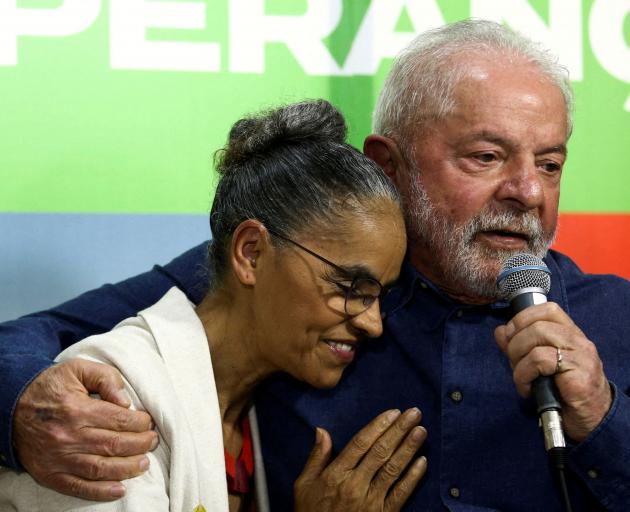
Perhaps a bit of both.
Mr Bolsonaro is a menace to Brazil and the future of the earth. He is anti-environment, and deforestation of the Amazon — the so-called lungs of the planet — was encouraged and accelerating under his rule.
He also displayed clear authoritarian and anti-democratic characteristics, a la his hero, former United States president Donald Trump.
Therein lies one reason for caution. Like Mr Trump, he has not conceded the close election (50.9% to 49.1%). He has, after two days’ delay, given a brief statement in which he said he would abide by the constitution. But he did not admit defeat.
His chief of staff, however, said their team would begin the process of transition to a new government.
Mr Bolsonaro also left room for doubt in comments on protests, notably truckers blocking many roads. He said protestors should avoid destroying property or "impeding the right to come and go." But he did not tell them to go home.
It is as if he is endeavouring to keep options open. He, like Mr Trump, even pre-election was alleging fraud in the electronic voting, although no evidence has been produced.
Encouragingly, some of his key allies in Brazil have accepted that he lost. US President Joe Biden and China’s President Xi Jinping quickly recognised his successor, Luiz Inacio da Silva, or Lula as he is known.

He is ready to reinvigorate international co-operation on the Amazon and has a history of support for the rainforest and its indigenous peoples. Nevertheless, severe obstacles and vested interests will block progress. Sixty percent of the Amazon is in Brazil.
Mr da Silva (77) will also find Bolsonaro supporters in key governorships and in strong positions in the Congress. His own coalition is diverse and fragile unified primarily in opposition to Mr Bolsonaro.
While he previously increased assistance for the poor and has been credited with lifting 25 million people out of extreme poverty, he will find economic conditions for this third term much more difficult.
His policies, like a big lift in the minimum wage and tax cuts for the poor, could exacerbate inflation, already about 7%.
Mr da Silva has made the right noises about ruling for all Brazilians, in contrast to Mr Bolsonaro’s consistently divisive stances. But that is easier said than done. Words can be cheap. Mr da Silva’s win was surprisingly narrow considering the disastrous Covid policies and the widespread increase in poverty during the Bolsonaro years.
Underlying the election result is that almost 50/50 split, representing a divided nation. Interestingly, despite compulsory voting, 32 million Brazilians also did not vote. About 119 million cast ballots.
There was no middle ground when the populist and leftish titans clashed.
It is tempting in New Zealand to think of Brazil as of little relevance and far off. It is, though, the fifth-largest country in the world in area, the seventh in population (220 million) and the ninth in GDP.
It is considered an "advanced merging economy". It is the world’s largest producer of coffee.
Pre-pandemic, about 3300 Brazilian students studied in New Zealand and 17,000 visitors came from Brazil annually. Queenstown has a significant Brazilian community.
Brazil’s institutions and democracy have, at least so far, held up well to strain and threat under the mercurial and authoritarian Mr Bolsonaro. Pleasingly, the army has remained aloof.
It will, though, be a relief when the new president takes over on January 1 next year.












